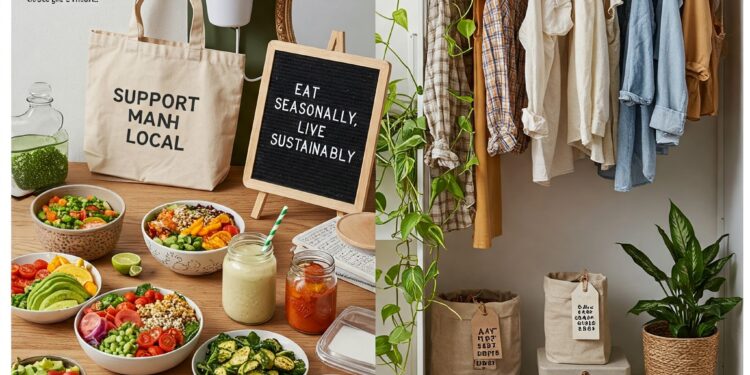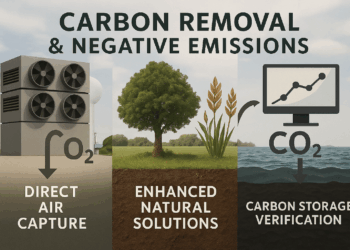In a world grappling with climate change, mass extinction, and rising inequality, sustainability isn’t just a trend—it’s a necessity. But here’s the good news: meaningful climate action doesn’t have to start in the boardroom. It can start in your kitchen, your closet, and your shopping cart.
Rethinking What’s on Our Plates
One of the most impactful shifts we can make is in our diets. Industrial meat and dairy production are major contributors to greenhouse gas emissions, deforestation, and water pollution. By reducing our intake—or switching to a plant-based or low-carbon diet—we can significantly cut our ecological footprint. Think lentils instead of lamb, oat milk over cow’s milk, and the occasional tofu stir-fry in place of burgers. It’s not about perfection—it’s about progress.
Eat Local, Eat Seasonal
Every time we buy strawberries flown in from halfway across the world or out-of-season avocados, we’re inadvertently supporting a system of carbon-heavy transportation. Choosing local, seasonal, and organic produce helps lower emissions, supports nearby farmers, and reduces reliance on industrial farming methods that degrade soil and pollute waterways. Bonus: it often tastes better too.
Fast Fashion Is Out, Slow Style Is In
Our closets are part of the climate equation. The fast fashion industry churns out low-cost, low-quality clothing at a devastating environmental cost—contributing to water waste, carbon emissions, and exploitative labor practices. The solution? Buy less, choose better. Opt for ethically made or second-hand pieces, swap with friends, or simply learn to love the wardrobe you already have. Fashion should express your values as well as your style.
Cut the Plastic Habit
The war against plastic waste begins with the choices we make every day. Single-use plastics—bags, bottles, straws—are clogging our oceans and harming wildlife. Reusable alternatives are widely available and stylish to boot. Whether it’s a stainless steel water bottle, beeswax food wraps, or a cloth tote for groceries, these small switches make a big difference over time.
The Takeaway
Sustainable living isn’t about sacrifice—it’s about intention. Every bite, buy, and bag is a vote for the kind of world we want to live in. In 2025, conscious consumption isn’t a lifestyle niche—it’s the foundation of a livable future.
Because real power lies not just in how we live—but in how we choose to live.








